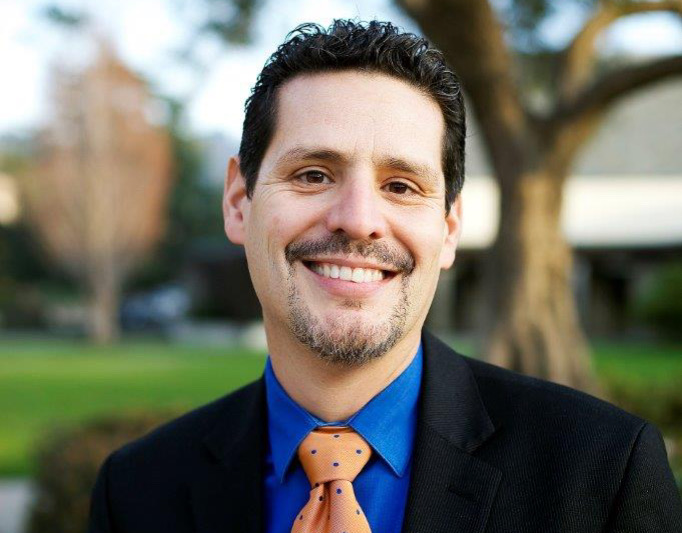Yesterday the Supreme Court of the United States ruled that colleges’ use of race as a factor in student admissions is unconstitutional, ignoring our country’s long history of racist systems that continue to affect our current reality.
As a majority people of color community, we know the long journey we must travel to fulfill our mission to create a world where all can thrive, and we remain steadfastly committed to pursuing it.
Jesus quoted the words of his ancestors to define his calling: “The Spirit of the Lord is upon me because he has anointed me to bring good news to the poor. He has sent me to proclaim release to the captives and recovery of sight to the blind, to set free those who are oppressed, to proclaim the year of the Lord’s favor.” These powerful words, spoken with conviction and purpose, call for a profound transformation—a metanoia—a turning around. They recognize that to address the brokenness of the world, we must collectively change course and seek a new way.
At Pacific School of Religion, these timeless words resonate deeply with our mission and ethos. For over 150 years, we’ve been at the forefront of social movements that strive to “turn around” the tide of inequity in every community where our graduates serve. In our pursuit of justice and equality, we draw inspiration from the teachings of Jesus and the wisdom of our shared religious traditions.
Central to this transformative journey is the concept of the year of the Lord’s favor or Jubilee, as outlined in Leviticus 25. This ancient practice recognizes that inequality accumulates over time, and our laws and systems must actively work to rectify the savage inequalities that threaten life and human flourishing. It’s a call to dismantle oppressive structures, liberate the marginalized, and restore balance and wholeness to society.
Informed by the rituals and teachings of the Christian tradition, we acknowledge that embracing this new way begins with a deep recognition of the brokenness that leads to inequity. In Justice Sotomayor’s dissenting opinion, she decried the decision as cementing, “a superficial rule of colorblindness as a constitutional principle in an endemically segregated society where race has always mattered and continues to matter.” She rightly argues that racial inequality will persist as long as it is ignored, and the consequences will entrench racial segregation in higher education.
We mourn the implications of this decision and its devastating impact on our efforts to address the savage inequalities that plague our educational system, particularly the K-12 system. The ruling will limit the initiatives of higher education institutions to rectify these disparities, hindering our progress in creating a more just and inclusive society.
We were shocked again today to see the decision in 303 Creative L.L.C. v. Elenis, which invalidates laws protecting our LGBTQ+ family from discrimination under the guise of ‘religious freedom.’ Together these decisions put our nation on a deeply troubling path.
However, in the face of these setbacks, we recommit ourselves to the vital work of preparing a diverse generation of leaders. We do this through the relationships we build with communities that have been historically marginalized to identify emerging leaders, by infusing our curriculum with anti-racist theory, and with our stackable approach to education, all bolstered by a distributed learning collective.
PSR firmly believes in the power of education to dismantle systemic barriers and empower individuals and communities. We remain steadfast in our commitment to providing an inclusive and transformative educational experience that equips our students to challenge injustice, promote equality, and foster social change. Our collective efforts, combined with the determination of our graduates, will propel us forward in creating a more equitable and compassionate society.
The call of Jesus, echoed through the ages, urges us to embrace this sacred work in every generation. It is a call to turn away from the status quo and envision a world where every person, regardless of their background or circumstances, can flourish. Let us heed this call, pursue a more inclusive future, and come together as a community dedicated to justice and love.
 Rev. David Vásquez-Levy serves as president of Pacific School of Religion in Berkeley, California –a progressive, interdenominational seminary and center for social justice that prepares theologically and spiritually rooted leaders to work for the well-being of all. A committed pastor, a nationally recognized higher education and immigration leader, and a sought-after speaker, Vásquez-Levy leads at the intersection of faith, higher education, and social change.
Rev. David Vásquez-Levy serves as president of Pacific School of Religion in Berkeley, California –a progressive, interdenominational seminary and center for social justice that prepares theologically and spiritually rooted leaders to work for the well-being of all. A committed pastor, a nationally recognized higher education and immigration leader, and a sought-after speaker, Vásquez-Levy leads at the intersection of faith, higher education, and social change.
President Vásquez-Levy is committed to innovation and access in theological education and leadership formation. He serves on the GTU Consortial Council, is co-founder and convener for La Colectiva, a group of Latinx executive leaders at ATS schools, and is a member of the executive leaders group of AshokaU campus network and the Asociación para La Educación Teológica Hispana (AETH). He also serves as Vice-Chair on the board of Church World Service, one of the largest ecumenical development agencies in the world, and the Advisory Council for Encore.org.
He regularly contributes a faith perspective to the national conversation on immigration, including speaking at a congressional briefing, immigration consultations with both the Obama and the Biden White House, engaging in a series of public conversations with various State Attorneys across the country in an effort to reframe our national conversation about immigration. He has worked on consulted on a number of documentaries on immigration, labor, and human rights and is the author of various publications that explore migration stories in sacred texts and in people’s lives.
